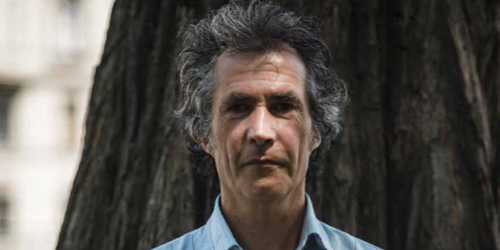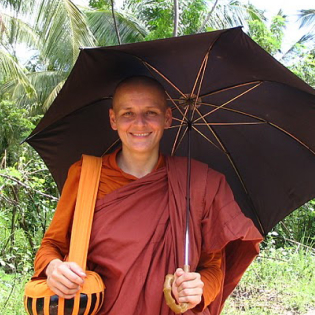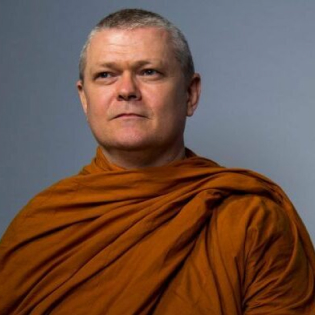More than 150 hours of teachings
from renowned Theravada teachers from around the world
Why start meditating? What is the schedule for a meditation course or a self-retreat?
Find out more before your first course and see the most frequently asked questions.
Join
Meditation courses with a teacher
We have been inviting experienced monks and teachers from all over the world to Javorie for more than 10 years. You can practice concentration or insight meditation with us in a safe environment under qualified guidance.

Meditation course with Bhante Gavesi

Meditation course with Hannes Huber

Meditation course with Katarina Biresova and Vaclav Smilauer(Vipassana)
For old students
Self-retreat
Individual meditation (or self-retreat) means meditating on your own in your hut (kuti) without a teacher and without attending a course. For the experienced meditator who has already attended several meditation retreats, self-retreat is a meaningful way of deepening one’s own meditation practice at the time and length that suits one’s individual needs.
- available at a time that suits you between May and October (if you are interested in self-retreat outside of this time, let us know)
- intended for more experienced practitioners
- schedule based on individual needs and preferences
How does individual meditation work?
The practitioner is accommodated in one of the 14 small huts (kuti). These have shared facilities (kitchen, toilets, showers) outside the main building. In the kitchen you can prepare your own meals. If you wish, it is also possible to eat with the participants of a meditation course, if one is in progress (the food is always vegetarian). If you choose this option, mealtimes would be the only fixed times in your schedule. Other than that, you can organize your own time as you see fit.
What should I bring to the self-retreat?
If you wish to cook for yourself in the communal kitchen, bring your own groceries. We can also help you to do some basic shopping or take you to the nearest village shop. Other useful things would include: warm clothes (even in summer), waterproof clothes (or an umbrella), a torch.
No need to bring bed linen, towels, blankets or meditation cushions.
What does it look like in the kuti?
A small A-frame hut (kuti) in a basic simple style with a bed (extra bed available) and a wardrobe. Kitchenette, toilet and showers are in shared facilities in a separate building. Accommodation available from May through October. If you are interested in self-retreat outside of this time, let us know.
Space
An oasis of silence
for spiritual work and advancement
A place amidst of beautiful nature that provides a safe haven for your meditation practice. A space that allows you to put aside your everyday personality and invite your inner being to work.
We are happy to share our space at Javorie, which primarily serves meditation, with groups who, like us, follow the path of inner growth and self-development. In an effort to maintain the meditative nature of our centre, we only host courses that we trust are in accordance with our mission. This is for example the new mindfulness style, yoga, qi gong, and others.
Sangha
Volunteering
Support us
Javorie has been organizing meditation retreats for over 10 years. During that time, hundreds of new students and experienced practitioners from all over the world have spent time with us under the guidance of renowned teachers from Europe and Asia. We see a deep meaning in creating a conducive environment for meditation practice, in maintaining and improving the Centre’s grounds, expanding our library, hosting meditation teachers, looking after monastics coming to us for longer stays (Vassa), and simply doing everything that is needed for the Centre to prosper.
Join us
Join us to help maintain and develop the area of the Centre. Get involved in outdoor activities or, if you are a pro in your chosen profession, help us with professional matters. We are volunteers ourselves and welcome any sincere help. We offer accommodation and meals during your volunteer work. If there is spare time, you can enjoy the grounds for silent meditation and rest.
Support Us
Together we allow Javorie to serve its purpose
for more than 10 years now
If you are passionate about our work and mission, you can make a one-off or a regular donation, or support us with your work.
Your the first time on a meditation retreat
How does a
meditation retreat work?
During a meditation retreat, we go deeper into the silence of our presence. Verbal and non-verbal communication ceases and we are able to observe the inner manifestations of the physical, emotional and mental body. Focused and mindful, we observe things as they are in their nature. Getting started is easy and requires no prior practice.

Sati
Term "sati" means mindfulness or awareness in the Pali language that has been used in the time of the Buddha. Sati is one of the seven factors of enlightenment and a key concept in Buddhist meditation and practice. It involves being present and attentive to one's own experiences, thoughts and emotions without judgment. It includes awareness of one's actions and intentions and their impact on oneself and others. By developing Sati properly, one can cultivate greater insight and wisdom, leading to a deeper understanding of oneself and the nature of existence.














